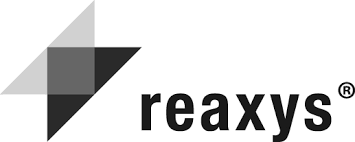Thyroid Function in 509 Premature Newborns Below 31 Weeks of Gestational Age: Evaluation and Follow-up
Ariadna Campos-Martorell1, Alicia Montaner Ramon2, Karla Narváez Barros3, José Luis Marin Soria4, Rosa Maria López Galera4, Diego Yeste Fernández5, María Clemente León51Autonomous University of Barcelona, Vall dHebron University Hospital, Clinic of Pediatric Endocrinology, Barcelona, Spain2Vall dHebron University Hospital, Clinic of Neonatal, Barcelona, Spain
3Hospital del Mar, Clinic of Pediatric Endocrinology, Barcelona, Spain
4University of Barcelona, Spain School of Medicine, Neonatal Screening Program of Catalonia, Inborn Errors Metabolism Unit Biochemistry and Molecular Genetics Department Center for Biomedical Diagnosis (CDB) Hospital Clinic, Barcelona, Spain
5Autonomous University of Barcelona, Vall dHebron University Hospital, Clinic of Pediatric Endocrinology; Vall dHebron Research Institute, Clinic of Paediatric Endocrinology, Barcelona, Spain
INTRODUCTION: Preterm and low birth weight (LBW) neonates may present with thyroid dysfunction during a critical period for neurodevelopment. These alterations can be missed on routine congenital hypothyroidism (CH) screening which only measures thyroid stimulating hormone (TSH). The objective of this study was to evaluate a protocol for thyroid function screening (TFS) six years after national implementation.
METHODS: Serum TSH and free thyroxine (fT4) were measured during the second week of life in neonates below 31 weeks. Patients with abnormal TFS (fT4 <0.8 ng/dL and/or TSH >5 mU/L) were followed up with repeated tests until normal levels were reported. Patients who were still on levothyroxine (LT4) at three years of age were re-evaluated.
RESULTS: Five-hundred and nine neonates were included. Thyroid dysfunction was detected in 170 neonates (33%); CH n=20 (3.9%) including typical CH n=1; delayed TSH elevation CH n=19; hypothyroxinemia of prematurity (HOP) n=15 (2.9%); and transient hyperthyrotropinemia n=135 (26.5%). Twenty-one neonates (4.1%) were treated (20 for CH and 1 for HOP). At 3-year follow-up only three patients were diagnosed with permanent CH and still need treatment. LBW infants tended to have TSH levels higher than those with adequate weight.
DISCUSSION AND CONCLUSION: This protocol was able to detect thyroid dysfunction in preterm neonates who were not identified by the current program based on TSH determination in whole-blood. This thyroid dysfunction seems to resolve spontaneously in a few months in the great majority of neonates, but in some cases LT4 could be needed. There is a critical need for specific guidelines regarding the follow-up and re-evaluation of transient CH in preterm neonates.
Manuscript Language: English



























